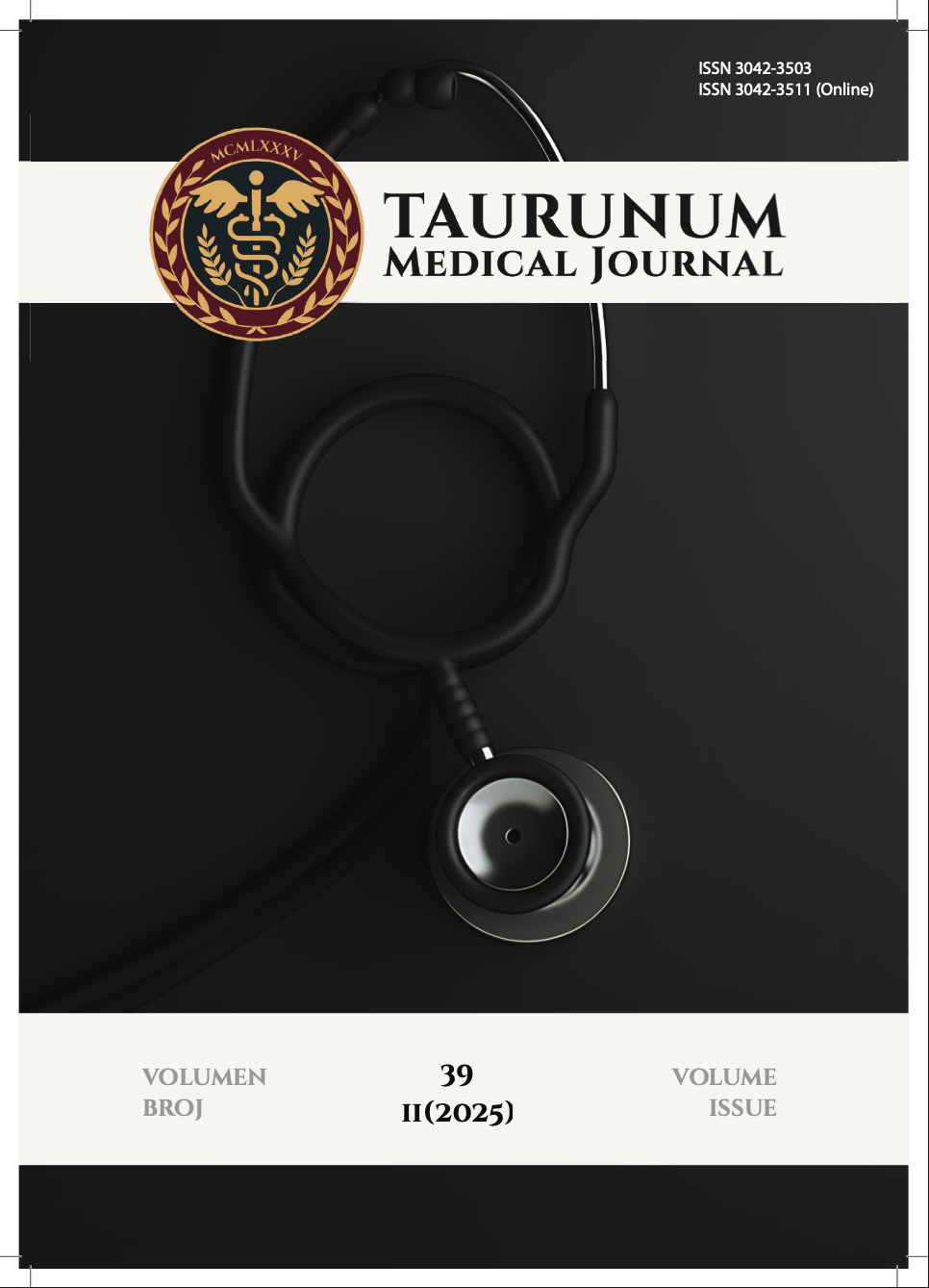Current issue

Volume 39, Issue 2, 2025
Online ISSN: 3042-3511
ISSN: 3042-3503
Volume 39 , Issue 2, (2025)
Published: 12.11.2025.
Open Access
All issues
Contents
01.12.2012.
Review Article
Anxiety state of the pregnant women in Serbia with gestational diabetes mellitus class A1
The psychological impact of developing gestational diabetes mellitus (GDM) has been investigated widely in both children and adults. Although these studies suggest that person who develop GDM is at risk for emotional/ psychological distress, this finding is not universal. The aim of our study was to look at the state of anxiety in the group of pregnant women with well controlled GDM class A1 patients at 36 weeks of gestation and to compare it with the healthy controls at the same gestational age in population of pregnant women in Belgrade, Serbia. The study was carried on in 48 pregnant women with GDM and 80 healthy controls. The anxiety state of the two groups was evaluated with Hamilton Anxiety Scale (HAMA). The incidence rate of anxiety in the pregnant women with GDM were 27.03% (13/48), and in the healthy pregnant women 13.75% (11/80). The incidence rate of anxiety in pregnant women with GDM was higher significantly than control group, and there were significant difference in total score and its factorial score of HAMA in the two groups. The incidence rate of anxiety in the pregnant women with GDM is higher, and anxiety is the dangerous factor of GDM. Psychological state in pregnant woman, especially in pregnant women with GDM must be noticed, and psychological counseling and psychological therapy may be carried on as early as possible.
Tatjana Perovic, Dragan Savkovic, Miroslava Gojnic-Dugalic, Milan Perovic, Minja Stankovic, Dragana Bojovic-Jovic, Zeljana Marinkovic
01.12.2012.
Review Article
Correlation of maternal BMI with fetal adipose subcutaneous tissue
Study objective was to test the relationship between maternal body mass index (BMI) and fetal abdominal subcutaneous fat tissue (ASCT) measured by ultrasound. The total number of pregnant women enrolled in the prospective study was 280. For all participants BMI was determined. Study participants underwent ultrasound exam at 32nd week of gestation and ASCT was measured. Positive correlation has been found between ASCT and maternal BMI (p<0.01, r=0.1612). The study showed that intrauterine growth and development is partially regulated by the maternal BMI.
Neda Andrejevic, Aleksandar Dmitrovic, Miroslava Gojnic-Dugalic, Eliana Garalejic, Biljana Arsic, Milan Perovic, Dusica Kocijancic, Aleksandar Jovanovic, Bojana Gutic
01.12.2012.
Review Article
Pre and post test HAMA scores in women undergoing oral glucose challenge test
The 50-gram non-fasting one hour Glucose Challenge Test (GCT) is today the one most widely implemented as a screening test for Gestational Diabetes Mellitus (GDM). Positive result of GCT creates a preliminary GDM diagnosis. Diagnosis of GDM labels a pregnancy high risk. Any highrisk pregnancy can cause maternal anxiety. The aim of the study was to investigate pretest and posttest anxiety levels in pregnant women undergoing GCT. Anxiety levels were evaluated by Hamilton Rating Scale for Anxiety (HAMA score). Pretest HAMA score was 7.1±3.34 in the women with preliminary GDM diagnosis, and 6.69±5.51 in the women with negative GCT results. After delivering GCT results, HAMA score was 8.64 ± 8.10 in the women with preliminary GDM diagnosis and 4.29±2.29 in the women without preliminary GDM diagnosis. Pretest levels of anxiety among all pregnant women undergoing GCT were increased. However, this was temporary in women with negative GCT, whose anxiety levels decreased after delivering GCT results. Among women preliminary diagnosed with GDM, posttest HAMA evaluation revealed sustained increased levels of anxiety. Concerns regarding the anxiety caused by screening for GDM were confirmed by the results of our study
Dragan Savković, Tatjana Perović, Eliana Garalejić, Biljana Arsić, Milan Perović, Miroslava Gojnić-Dugalić, Uroš Babić



